Meet Julia and her 8 year old daughter Amelie from a quaint town in southern Germany. With a background in travel and economics, Julia found her true calling in Bali after realising the corporate world wasn’t for her. Together they embraced the vibrant culture and serene landscapes of Bali, making it their home for the past seven years.
Can you tell us a little bit about yourself?
My name is Julia, I am 43 years old, and I come from a small village in southern Germany. I’ve always had a passion for travel, which led me to work in a travel agency in Munich for many years. Later, I pursued studies in economics and transitioned into HR. However, I never truly felt at home in Germany; I felt out of place, living only for weekends and holidays. The corporate world often seemed nonsensical to me. After traveling through Asia for 1.5 years, I realized it wasn’t me that needed to change; I was simply in the wrong environment in Germany. When my daughter Amelie was 1.5 years old, I made the decision to leave Germany with her and move to Asia.
When did you first arrive in Bali, and what brought you here?
It was by chance that I came to Bali. When Amelie was 7 months old, we traveled to India and stayed for six months. At first, I was not sure if it is good to travel and emigrate with a baby. But in India, it quickly became clear to me that it was the right path for us. Finally, in 2017, we left Germany for good. After some time in India, I decided to visit a friend in Ubud. From the moment we stepped out of the taxi, we loved it and chose to stay. Initially, we had 60-day visa since I was unsure how long we’d enjoy living in Ubud. But here we are, 7 years later, still enjoying it.
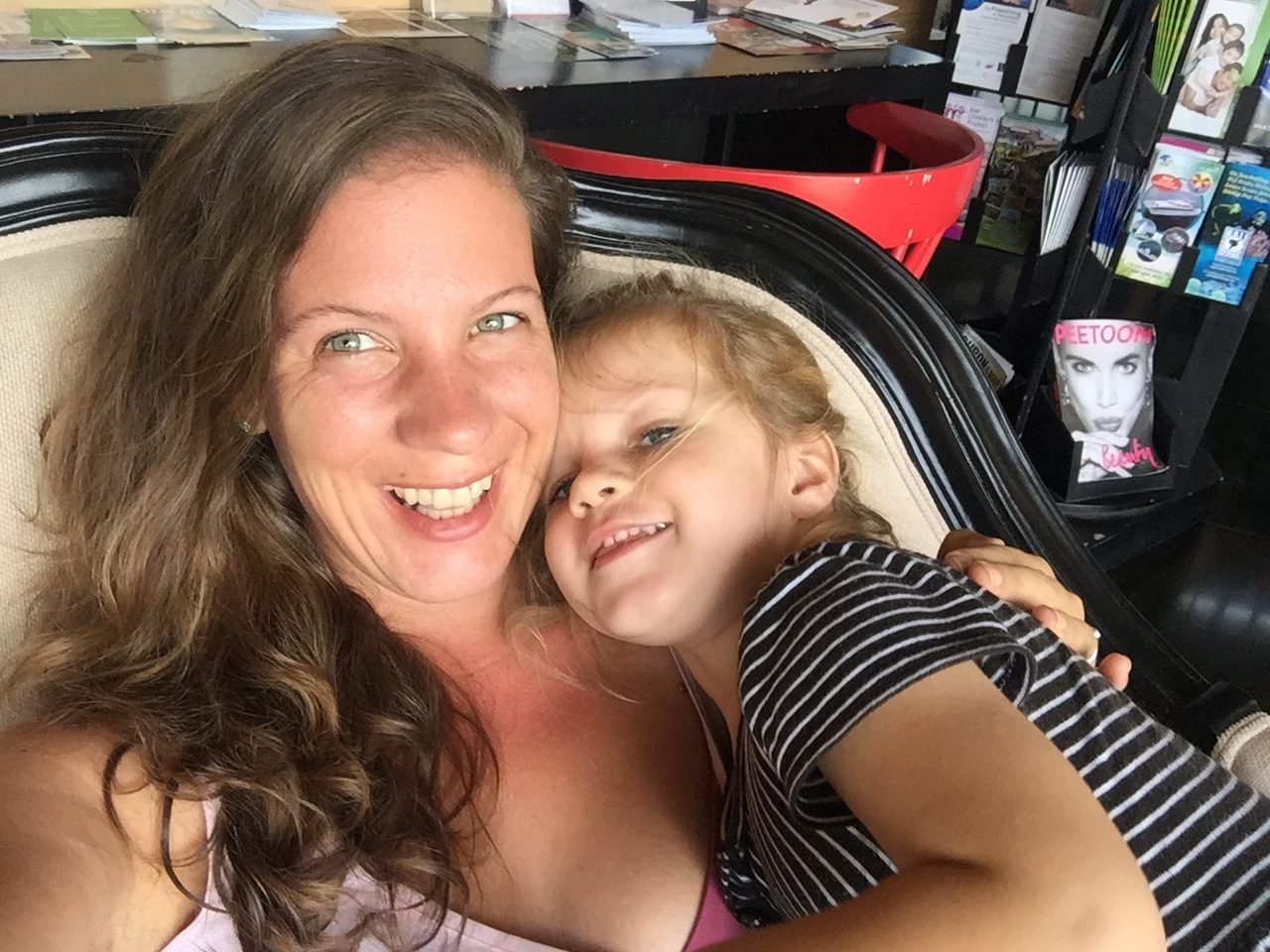
How long do you think you will live in Bali? I know plans can change!
I suppose we will stay here forever, but one can never be certain.
You first lived in Ubud and then recently moved to Sanur.
We lived in Ubud for 6.5 years, a town known for its spiritual scene, which fascinated me for a long time. The scenery around Ubud, with its rice terraces, lush hills, and jungle, is breathtakingly beautiful, dotted with cafes, restaurants, and yoga studios. My heart still belongs to Ubud. However, we decided to move to Sanur for its affordability and seaside location. Sanur is closer to the capital, Denpasar, and the airport, and offers better infrastructure than Ubud.
Where did you decide to send your Amelie to school?
Amelie first attended the Montessori Erdkinder School in Ubud because they offer education in both English and German. I wanted her to improve her German. The school had a number of German children, and we enjoyed our time there, especially during Covid when the roads were empty. However, as traffic increased post-Covid, it sometimes took us 1.5 hours to get to school. So, I decided to send Amelie to Madu Learning Center, a Steiner school just 10 minutes from our home. Madu was larger, with more kids, but Amelie adjusted easily, loved it there. She made friends quickly thanks to the kind and loving environment. Since moving to Sanur a month ago, Amelie has been attending Taruwara School. The transition was a bit challenging, but the teachers are wonderful, professional, and loving.
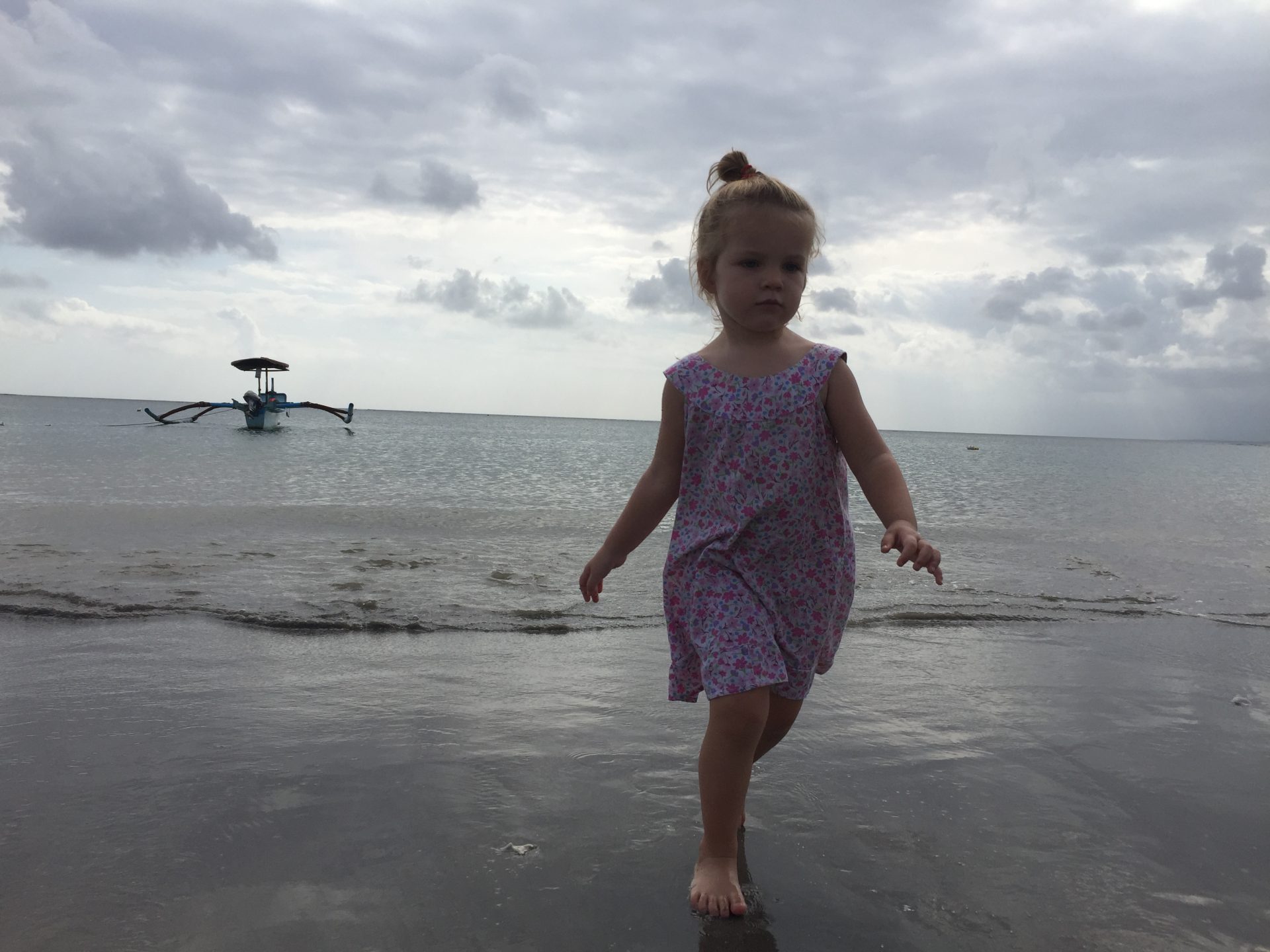
What are some challenges you face living in Bali?
The biggest challenge is the constant change. Bali is always in flux, with families coming and going and kids frequently changing schools, making it difficult to develop deep connections.
What tips and advice would you share about how to best settle into Bali life?
To feel comfortable in Bali, I recommend building a network on site as quickly as possible. It’s easy to meet people. The locals are open and helpful. You can also meet other expats through schools or leisure activities. Having a network makes you feel at home quickly.
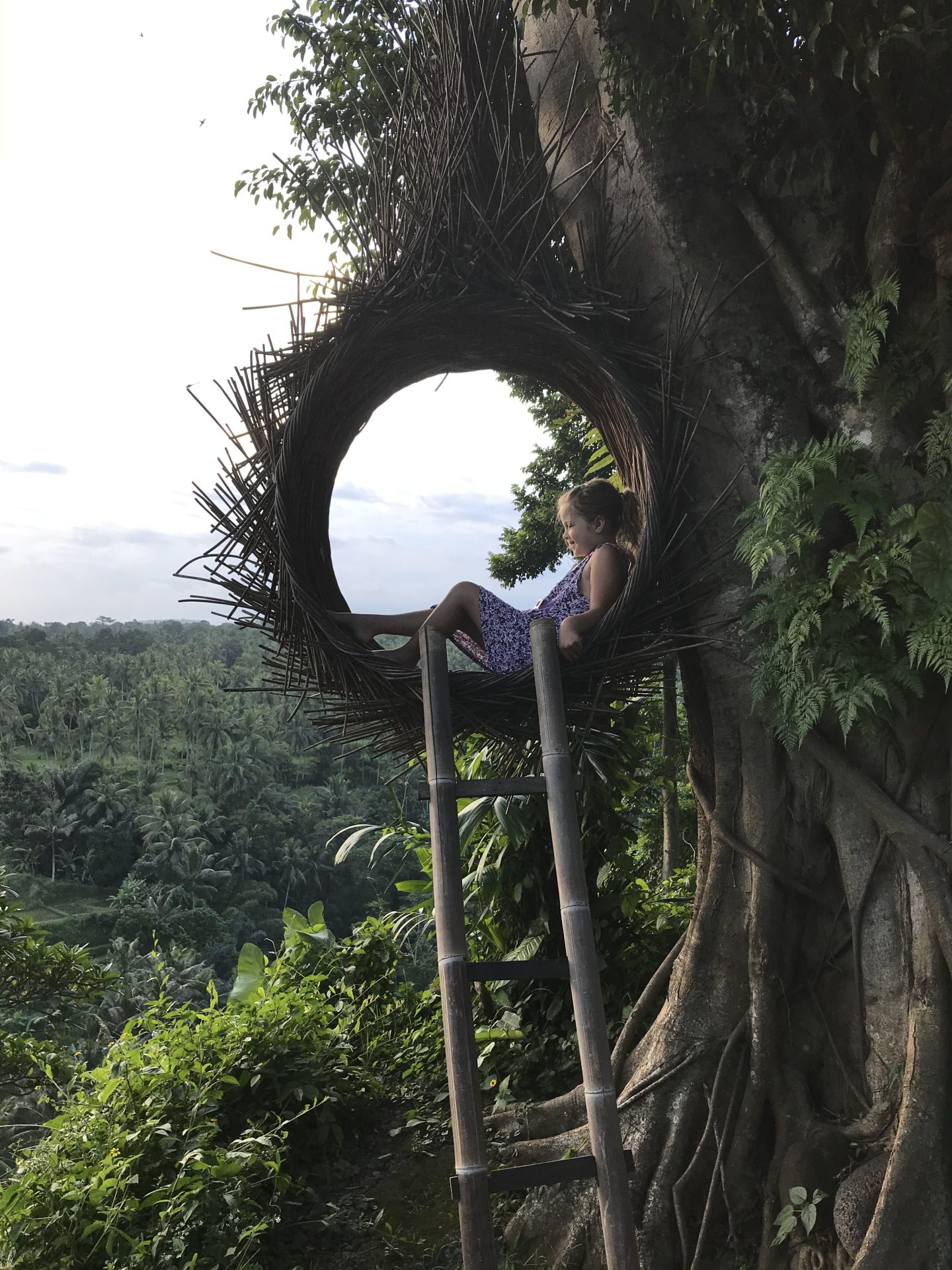
How have you adapted to the local customs and traditions in Bali, and what are you learning and enjoying from the experience?
From my previous travels, I knew about Asian customs like removing shoes outside and not handing things over with the left hand. However, I was unfamiliar with Bali’s many holidays and traditions. I appreciate how religion and spirituality are integral to daily life here, unlike in Germany, where work often takes precedence. In Bali, family and traditions play a larger role, which I find appealing. We celebrate some ceremonies like Ogoh-Ogoh with the locals and find the traditions very fascinating.
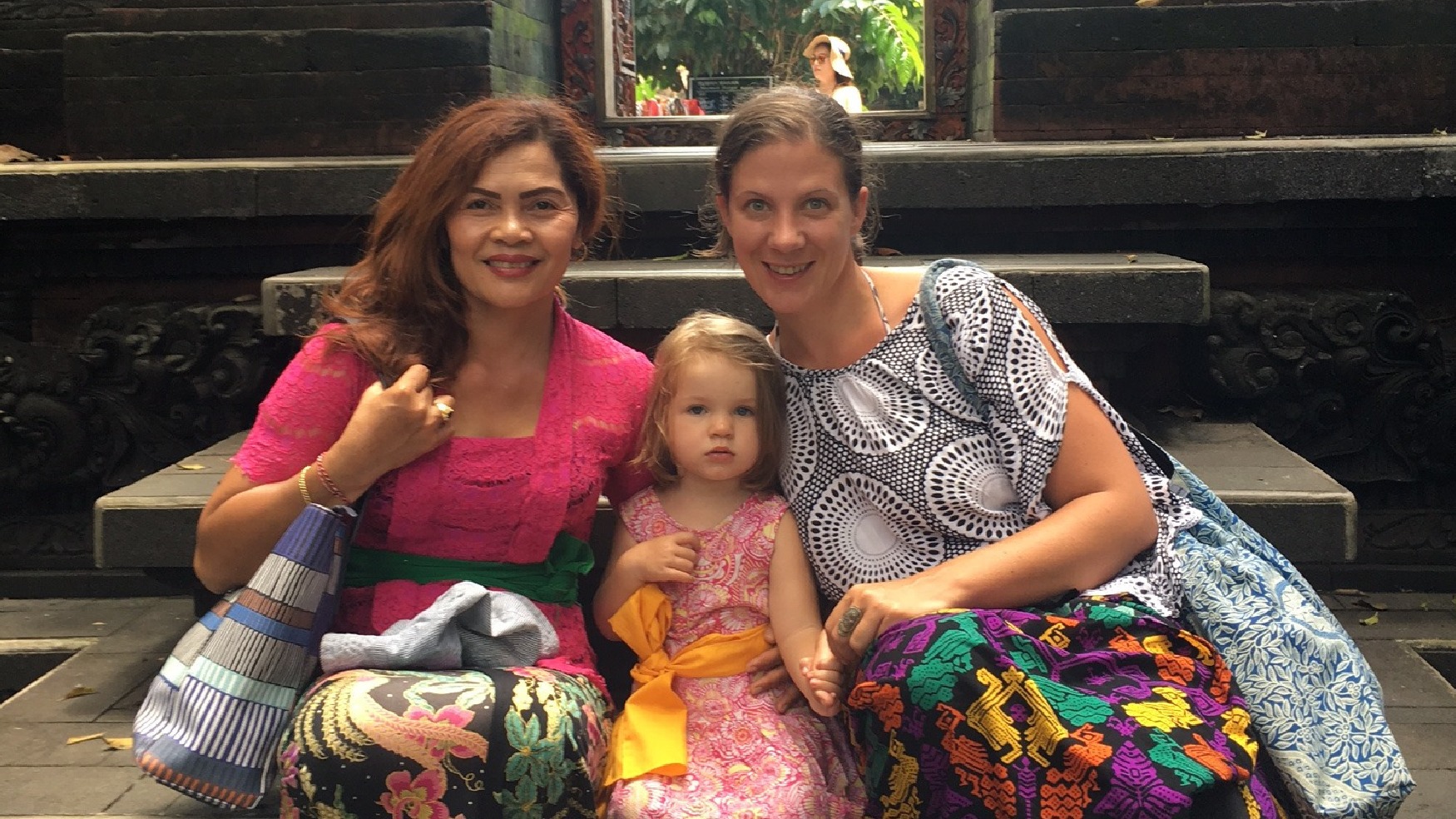
How has living in Bali influenced your personal and professional life, and what opportunities have you found here?
Living in Bali has allowed me to meet many interesting people. I find inspiration and motivation through conversations with both expatriates and locals. Coming from a German perspective, which can often be fearful and negative, I’ve learned to adopt a more positive outlook on life from the expats and Balinese.
What do you think are the biggest misconceptions about Bali, and how would you correct them?
Many people think living in Bali is like being on permanent vacation, but that’s not the case. Life here comes with its own set of challenges and difficulties. But for me, it somehow feels like I can overcome all problems much more easily in Bali. The gods seem to have their protective hand over this island.
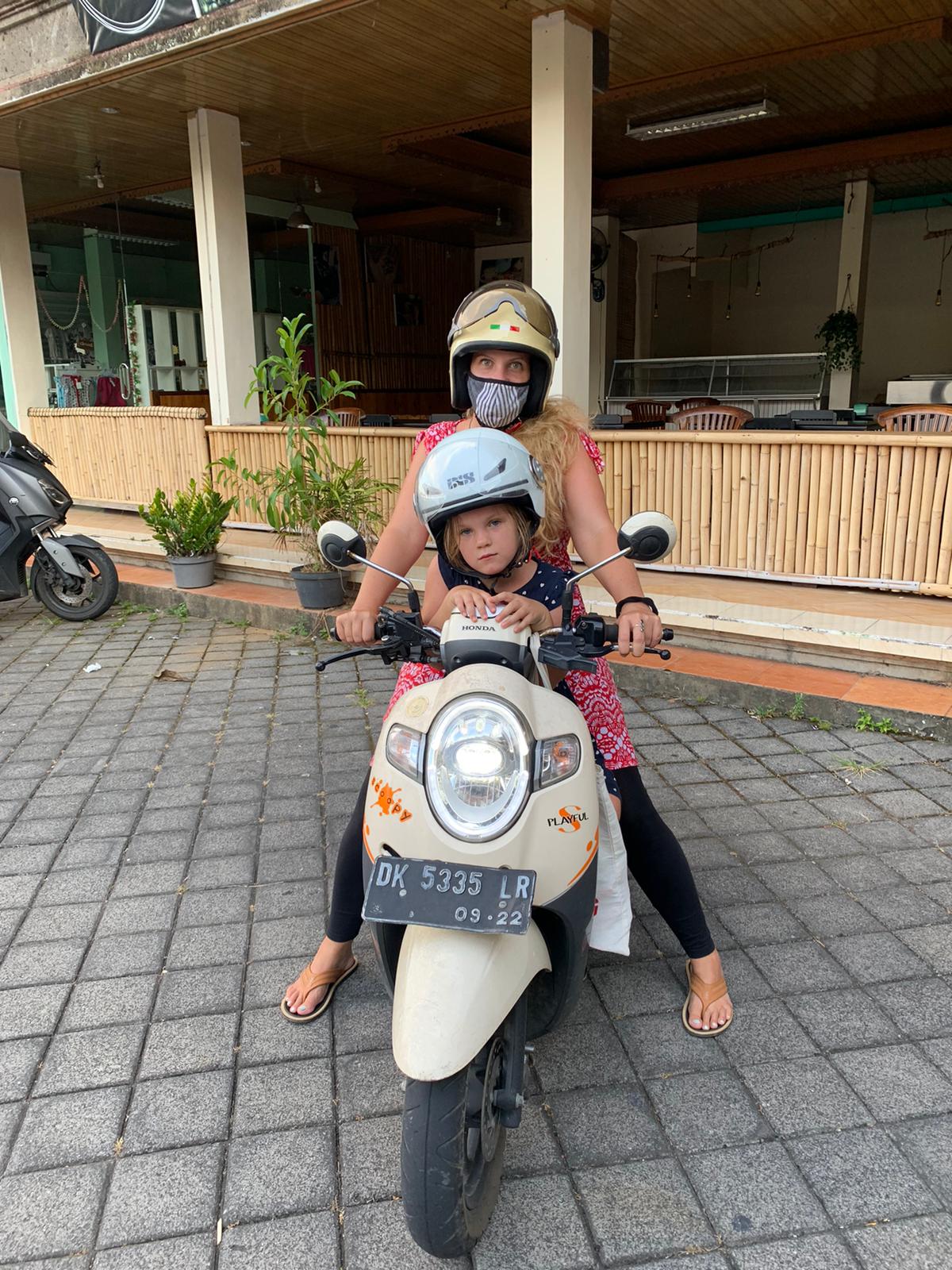
Can you walk us through what a typical day looks like for you in Bali?
During the week, our alarm clock rings at 6:30 AM. We have breakfast and get ready. Then I drive my daughter to school. I spend the day with everyday things. I take care of the household, run errands, meet friends, go to sports, etc. I usually don’t make plans for the afternoons. I don’t like having something scheduled, but prefer to decide based on my current mood. It might happen that we go to the beach, meet friends, go shopping, or sit in a café. The weekends are also quite varied. Sometimes we simply stay at home. Other weekends we are on the move, visiting friends in Ubud, going to the sea, or to the zoo.
What would you say is the best thing about living in Bali?
The weather, the people, and the safety are the best aspects of living in Bali for me.

What are some factors that families looking to live in Bali should consider?
Families should be prepared for constant changes. Bali is never boring, and routines rarely set in due to the ever-present flow of new faces and changing regulations.









